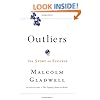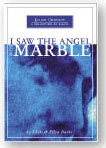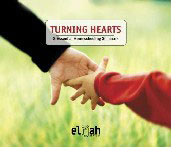
| E-journal August 24, 2010 |
THANKS SO MUCH to all of you who have responded to our home schooling survey and told us what you want to hear more about. If you still haven't taken survey of what you want to hear more about, you can GO HERE NOW and share your opinions. But now our son Blake would like your input. This is from him:: I grew up listening to James Dobson and reading Raising a Modern Day Knight, I Kissed Dating Goodbye, Boy Meets Girl, Best Friends for Life, Five Love Languages, etc. Please take a few minutes and respond to my dating/courtship/relationships survey. It won't take very long and I would appreciate it very, very much. And if you have a personal story about your dating/courtship or getting married as a home schooler, I'd love to hear it. You can contact me at cblakedavis@gmail.com. CLICK HERE TO TAKE THE SURVEY ON DATING/COURTSHIP AND BOY/GIRL RELATIONSHIPS.
The Importance of Encouragement and Mentors by Ellyn Davis View past ejournals HERE>> Sign up for our newsletter below. In the last newsletter, I shared that I recently finished reading the book Outliers by Malcolm Gladwell. Anything Gladwell writes is well worth reading, but this book is especially so because it's an analysis of hidden factors in people's childhoods that are critical to their success as adults. Exceptional Kids Come From Exceptional Conditions It's Crucial to Have Mentors The second critical factor to success is having a mentor. Most studies of successful people, including Bloom's, found that almost all high achievers were blessed with at least one mentor at a crucial period of their development. In her study of giftedness, Dr. lena Subotnik found that students generally realized their potential more fully if they had one-on-one relationships with mentors who prepared them for the challenges they would face after their studies ended. You can read a summary of her research here. Dr. Subotnik says:
So, it seems to me that home schooled children have a natural advantage. They have the time and resources to spend 10,000 hours pursuing their interests, they have concerned, encouraging parents who are heavily involved in their lives, and they generally have access to mentors. In short, they are destined for success. Until next time.... Ellyn
Resources Endangered Minds by Jane Healy explains why children (and adults) today have shorter attention spans, are less able to concentrate, and are less able to absorb and analyze information than any previous generation. In short, people today do not know how to think. And why don't they know how to think? Because when they were growing up they seldom were in the company of thinking adults. With over 4,000 copies sold in just a few months, I Saw the Angel in the Marble is becoming a home schooling best seller! This book represents the best of 15 years of Elijah Company articles. Find our more HERE>>
Turning Hearts: Davis Seminar Set (8 CDs)
|
Making a Living Online within 279 Days
Creating Your Life on-line course at 1/3 off. This is an online, video-based self-study course in which Robert Fritz is your teacher and you learn to create your own life just as an artist paints a painting, a composer composes a symphony, or a poet writes a poem. In this course, Robert further develops the special insights that he introduced in his best selling book The Path of Least Resistance. The course has five lessons that will take you from 5 to 10 weeks to complete and includes a copy of Robert’s book Your Life as Art as well as the course materials and use of tools on the website. This course online is normally $299 and if you took it in person in Vermont it would be at least twice that. But with this special invitation code you can enroll for $199. I highly recommend that you take this course as a family—husband, wife, and high school age children. To enroll in this course, go to www.wisepond.com and enter this invitation code: AFF1455.
Our friend Susan is a home schooling Mom and she is very concerned about her children's health. Her son, Liam is allergic to almost every chemical known to man, so Susan has to be very, very careful what she allows him to play with. When he gets together with other children and they play with Play Doh, Liam can't play. The dyes and chemicals in the dough can not only make him very sick, they might kill him. Home School and Home Business
Home Schooling and Home Business Resources
If you missed one of our From Home School to Home Business Conferences, you missed a great time.People who attended told us that it changed their lives—not only in the area of home schooling, but also in the area of creating their own sources of home income.This set is huge and filled with useful and encouraging information about how to be successful at home schooling and at home business! Find out more about this life-changing set of CDs HERE>> Building the Business of Your Dreams (8 CD Set) We've had requests for just the business portion of the From Home School to Home Business Seminar, so have developed a set of the business CDs from that set. It contains 8 CDs and includes sessions on The Entrepreneurial Mind, Multiple Streams of Home Income, Discovering Your Ideal Life and Ideal Business (2 CDs) , Developing a Business Plan (2 CDs), and The Importance of Business Relationships. Plus, there is a very important and insightful interview on Redeeming the Marketplace. Find out about this life-changing set of CDs HERE>> Be sure to sign up for our ejournal! Sign up below. © Copyright 2010. Home School Marketplace |
 New Survey on Dating, Courtship and Boy/Girl Relationships!!!
New Survey on Dating, Courtship and Boy/Girl Relationships!!! Outliers
Outliers




